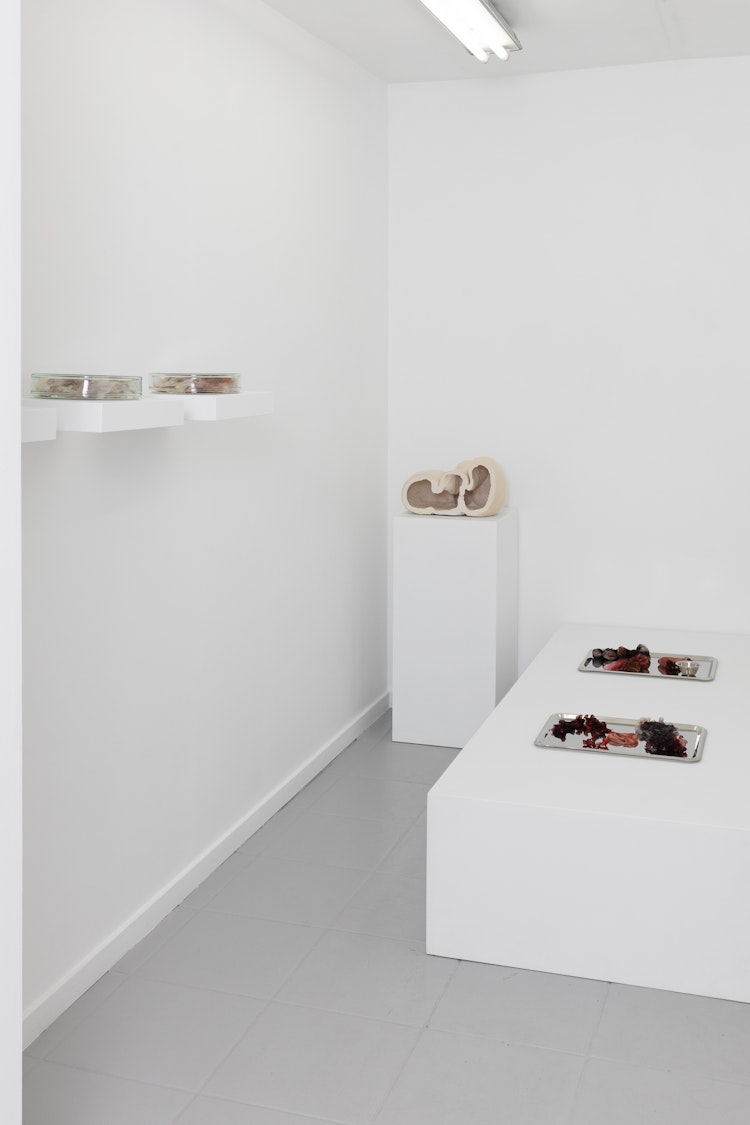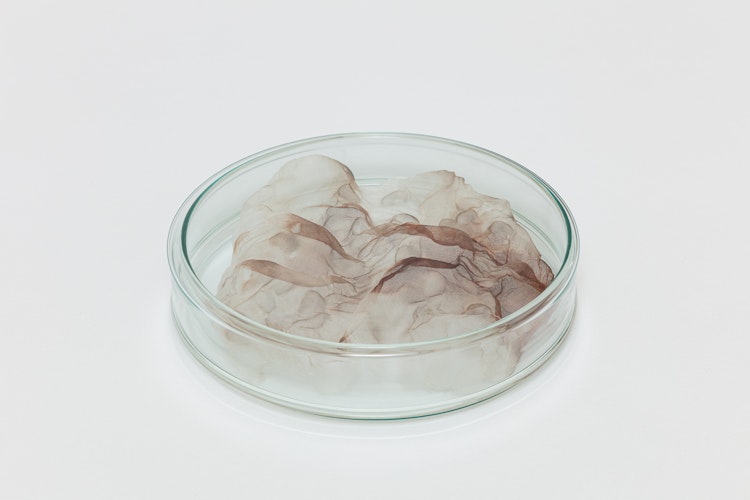Leaky Vessels


The exhibition opens 8th of June kl. 18.00-20.00.
QB Gallery presents ‘Leaky Vessels’ in KUBEN; a group exhibition featuring Yu Shuk Pui Bobby (HK), Erika Stöckel (SE) and Sarah Vajira Lindström (SE/NO), curated by Hannah Ingvoldstad.
A leaky vessel – drips – oozes. The effort of domestication has failed. The excess will slowly overflow, leaking onto the floor.
Since the dawn of time, humans have had the desire to categorize – catalogue. The author Rebecca Solnit writes: “[categories] I have found such leaky vessels all my life: everything you can say about a category of people—immigrant taxi drivers, say, or nuns— has its exceptions, and so the category obscures more than it explains, though it does let people tidy up the complicated world into something simpler.” [1] Each category has its exceptions.
The exhibition poses the question: What do we do with the leakage?
At the entrance of KUBEN, the audience are greeted by the work ‘You’re so SMALL, so CHINESE’ (2015) by Yu Shuk Pui Bobby. The work consists of numerous silicone replicas of the artists breast placed on the floor. The employed title questions that if a nationality can become an adjective, the recognized identity can be as deceptive as imagination. Furthermore, the piece is an exploration of the cultural image of nationality and how it relates to body uniqueness through the commodification and politicization of the artist’s own body. The artist is also exhibiting the video work ‘Disappearing Miss Hong Kong’ - a revisiting of an earlier work ‘Miss Perpetual: Form Piece’ (2017). In the work, Bobby investigates her own childhood fascination with Miss Hong Kong, as well as the evolving cultural idea of Hong Kong femininity.
Erika Stöckel explores identity as a leaky vessel in the exhibition. Her practice is based in ceramics, creating a layered and bulging expression – some even physically spilling over themselves. The works open up a dialogue about the concept of a normative body in relation to her Sami background, exploring thereby the nuances of a marginal history. According to Stöckel, the sculptures are simultaneously their own creatures with agency, as well as an extension of herself – the spectrum of her emotions crafted through the ceramic self-image.
The series ‘Similia similbus curantur’ (2022) by Sarah Vajira Lindström challenges the boundaries of the human and the non-human through the prism of food. It can be a connector between the human body, soil, plants, and animals – which can help reconcile the connection. The title of the series comes from the principles of the Doctrine of Signatures – a pseudoscience – used previously to explain the relationship between plants and healing. It was believed that foods looked similar to the organs which they healed thus rendering walnuts a medicine for the brain. Thus, the series is inspired by the aesthetics of medicine. Simultaneously, the textile has the expression of something non-existent – creating tension between the convincing and incomprehensible.
The exhibition invites to visitors explore the beauty, the nuance, and the intimacy of the leakage. The “loose threads, strange dreams, the forgettings and misrememberings, the portion of a life lived through others’ stories, the incoherence and inconsistency”.[2]
[1] Rebecca Solnit, The Encyclopedia of Trouble and Spaciousness
[2] Rebecca Solnit, The Faraway Nearby















What are you looking for?